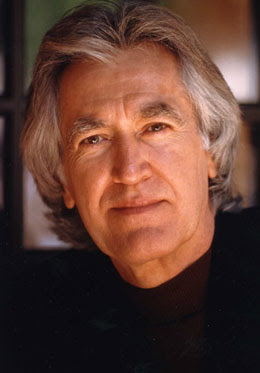 |
The
Slow philosophy is not about doing everything in a snail's pace. Not it
is a Luddite attempt to drag the whole planet back to some
per-industrial utopia. On the contrary, the movement is made up of
people like you and me, people who want to live better in a fast-paced,
modern world - Photo by Daniel
Monteiro on Unsplash
|
We live in a time when things are moving so fast that many of us have difficulty living our lives in more full and meaningful ways. We find it almost impossible to slow down, mainly because there is a cultural taboo against it. In contemporary society, the expression 'slowing down' implies laziness, inertia or slacking off on the part of the individual who chooses to decelerate. Words such as 'fast' and 'slow' are powerful connotations projecting societal values. Take for example, a person who is fast; she/he is presumed to be someone who can accomplish more in less time. The faster one can produce, the further ahead she/he can get in their profession. On the other hand, a person who is habitually slow accomplishes less and in all likelihood won't be successful in life.
Happiness Quotient
On the other hand happiness quotient is the measure of presence or degree of happiness in a person. But it is not always depend upon on an individual. In this complex, interrelated and interdependent
 |
Photo by Tanja Heffner on Unsplash
|
Unhealthy Working Practices
It is against contemporary capitalism that extols the virtues of speed, productivity and accumulation of wealth that we find increasingly difficult to practice what Gandhi believed
We seldom ponder the human cost of capitalism. In the relentless pursuit of speed, efficiency and material possessions we end up spending inordinate amounts of time in modern-day exhaustion, which frequently make us error prone, angry, depressed and ill. Millions all over the world now pop pills to seek relief from stress, insomnia, hypertension, migraines, gastrointestinal problems, to name but a few, all brought on by unhealthy working practices. Even young people in 30s are now experiencing high burnout from this frenzied world of work.there is more life than increasing its speed
Karoshi
The work ethic of high speed and ruthless efficiency probably has had the worst impact in Japan where the locals have word in Japanese for death by overwork, which is called Karoshi. Although the Japanese Government recently reported that there have been 143 victims of Karoshi, many work groups have put the death toll from overwork in Japan in the thousands. In order to keep up with the fast paced world of business, some people even more coffee just to survive. Potent stimulants like amphetamines have become quite popular among many white-color professionals across the world. They use these stimulants to get a euphoric feeling and alertness that usually lasts for most of one's workday. The side effects of amphetamines are several. They are very addictive and users of this stimulant come down with acute depression, anxiety and violent behavior. The contemporary work culture of haste has also affected our mental and emotional health.
Time Sickness
In 1982, Dr Larry Dossey ,an American Physician, coined the term 'time sickness' to explain the
 |
| Dr Larry Dossey PC his official website |
We are moving from a world in which the big eat the small to one in which the fast eat the slowEverywhere we go we find a mad race against the clock. According to the British psychologist Guy Claxton, living a life of acceleration has become second nature to us, Claxton is of the opinion that
we have developed an inner psychology of speed, of saving time and maximizing efficiency, which is getting stronger by the day.
Superficial Living
Living in a world of speed has rendered our life superficial in several important ways. When we are in haste, we can only focus at a surface level without having the time to go deep. We are unable to make genuine connections with either people or the world around us. We are in such a hurry that we often forget to fully appreciate the food we are eating or the people with whom we are interacting or places we are visiting. We are either texting, looking at the screen on our smart phones or busy taking selfies or other pictures to post immediately on social media. In this busy bustling times, we seem to have lost the art of taking. It slowly shutting out all the background noise and distractions and simply enjoying the stillness of the moment. In his novella, Stillness, Milan Kundera has warned us in no uncertain terms, about the downside of leading fast life
When things happen too fast, nobody can be certain about anything at all, not even about himself
Slow Movement
The slow movement, which is about promoting slowing down the pace of life, has started in several
 |
| Carlo Petrini |
In 2004, Carl Honore wrote his best selling non-fiction In praise of Slowness, where he describe the Slow Movement thus:
 |
The Slow philosophy is not about doing everything in a snail's pace. Not it is a Luddite attempt to drag the whole planet back to some per-industrial utopia. On the contrary, the movement is made up of people like you and me, people who want to live better in a fast-paced, modern world. This is why the Slow Philosophy can be summed up in a single word : balance. Be fast when it makes sense to be fast and be slow when slowness is called for. Seek to live at what musicians call the tempo giusto - the right speed.
The Slow Movement is not organized by any single group. People who are genuinely interested in expanding the movement beyond Europe, run the movement. Now the popularity of this movement can be seen in the United States, Australia and even in Japan. The Slow Movement has had a big impact in several areas of our lives such as Cinema, Food, Living Style, Travel and much more.
Cinema
Slow films characteristically consist of resistance to rapid movements and intense emotion and devotion to realism. This is accomplished by long takes, slow camera movements, unconventional use of music and sparse editing. Extensive studies on the art(s) of Slow Cinema are gaining momentum.
Food
Slow Movement is completely opposed to the idea of fast food. Under Slow Movement, food is produced organically and prepared in traditional ways all for the promotion of good health and complete enjoyment. The slow food needs to be consumed in a leisurely way savoring every morsel.
Living Style
This involves making conscious decisions about structuring one's life to give a sense of meaning and fulfillment. It emphasizes quality rather than quantity.
 |
| PC StockSnap |
Travel
Slow travel is not about traveling from one location to another. It is about immersing oneself in the cultural milieu of that place. It involves staying in the same place for a while to establish meaningful connections with that place and its people. The mantra is taking one's time to soak in the experience without the slightest hurry in the world.
 |
Photo by Robert
Metz on Unsplash
|
The Slow Movement is about slowing down to savor what we eat, how we travel, how we consume, how we produce and most importantly how we live. The slow movement exhorts us to practice stillness, contemplate, relax, spend quality time with family and friends and let our minds and interactions wander without the constraints of time. Although there is pressure in prevailing socioeconomic conditions, however we can certainly embrace many of the values that are espoused by the Slow Movement either on an individual level or collectively as a family. Some of these lessons include :
- Stop rushing through life so fast that we forget who we are
- Stop using turbo-speed in every thing that we do. Use judgement when it's okay to apply speed and when it is not.
- Stop doing everything all at once and instead, become more present and mindful.
- Slow down to locate the energy in us to make meaningful connections with the world we live in.
Final Thought
Now is the time to decide what kind of a life we want for ourselves - a life of maddening speed, which is aggressive, controlling, superficial, stressed and impatient, or a life that can be calm, receptive, intuitive, patient, reflective, helping us establish meaningful connections with work, people, culture and food- pretty much everything. The choice is clearly ours. In the words of the former Prime Minister of Israel, Golda Meir, we can learn how to
-- govern the clock . not be governed by it.












